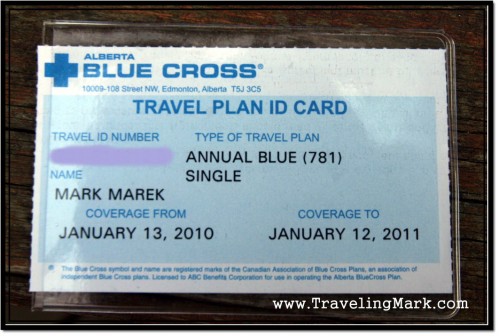If you’re traveling abroad, you definitely want to buy good Travel Insurance. At least that’s what all insurance companies tell us. Vast majority of people who buy travel insurance waste money on it, however those few who do get involved in an accident or become severely sick abroad would be in lifetime debt had they not bought the insurance prior to the trip. Buying travel insurance is obviously a big deal and an important decision to make prior to the trip. I faced the same issue myself – where do I go to buy best travel insurance in Canada?
Savvy travellers know that most travel insurances offered along with travel packages are a major rip off. Each time you buy a travel insurance along with the vacation package, you are overpaying hard core. This is somewhat understandable as majority of mainstream travel agencies sell mostly sun vacations which are so competitive, they are priced very low and deliver minimal mark-up. If travel agencies were to sell nothing but those popular vacation packages, they would not stay afloat for a very long time. Luckily there are travel insurances and that’s where they get you. While mark-up on popular vacation packages is minimal, mark-up on travel insurances most people buy along with the vacation is outrageous.
It is no different than extended warranties for electronics. It’s only thanks to those that big box stores are able to sell laptops and other gadgets for so cheap. So I’m OK with the fact that most people allow themselves to get ripped off on extended warranties or travel insurances. I’m one of the few who don’t fall for this but the reason I can get away with it is because majority of populace does get ripped off on overpriced travel insurances so travel agencies do have a buffer to work with and can let one person slip without buying one every once and again.
Here’s a comparison:
If you buy a Vacation to the Caribbean (Cuba or the Dominican Republic, for example) in Canada, the weeklong, all-inclusive package will cost you on average $800 plus taxes. Travel insurance for your weeklong stay will start at $80 and will go up to some $130 for a more complete package. You easily end up paying 10% or more of the cost of your all inclusive stay on top of the vacation for your travel insurance that covers you for a week.
Your other option is to call Blue Cross Canada and buy an annual insurance from them for the cost of $68 (in Alberta, not sure about other Canadian provinces and territories). This insurance covers your first 30 days of any stay abroad you take within a year from the validity of your insurance. That means that if you travel abroad let’s say 6 times a year and each of your stays is 30 days long or shorter, then this one time payment of $68 for the travel insurance covers your each trip.
If you didn’t buy this Blue Cross coverage, but instead purchased insurance individually each time you travel, you would be looking at a combined cost of $600 or more ($100 on average for each of your six trips, however if you take 30 day trips, the cost of insurance would be higher. $100 is typical for a one week vacation).

There are some terms of service associated with the Blue Cross travel insurance, for example that it doesn’t cover travel through war zones or other areas with advisories against travel to these areas issued by Foreign Affairs of Canada (published on voyage.gc.ca) so you do need to review it before purchasing, however for a normal travel through save and somewhat safe country, Blue Cross insurance covers you perfectly well for the initial 30 days of your stay abroad.
This is what I went with to Cuba, Dominican Republic and Iceland and since I still had 5 months of Blue Cross insurance left, I didn’t buy any additional coverage. I thought that my strategy would be to leave the country and move to another country after a month. Most tourist visas are valid for a month only anyway so unless you extend, you would end up leaving the country anyway. This way I’d be covered with my Blue Cross for the duration of following 5 months.
I remained opened to the possibility of buying health insurance from one of the insurance providers available in a country where I would decide to stay for an extended period of time. It only made sense that buying health coverage from Canada to insure me in a third world country would be expensive. But buying the same insurance from an insurance company that operates in that very country should offer the same type of coverage, but be noticeably less expensive to buy. And that was my plan when I was leaving for the long term travel. I didn’t have any solid travel insurance to cover me no matter what because I didn’t have the amount of money they cost. But I did have it figured out reasonably well to remain covered in case poop hits the fan.